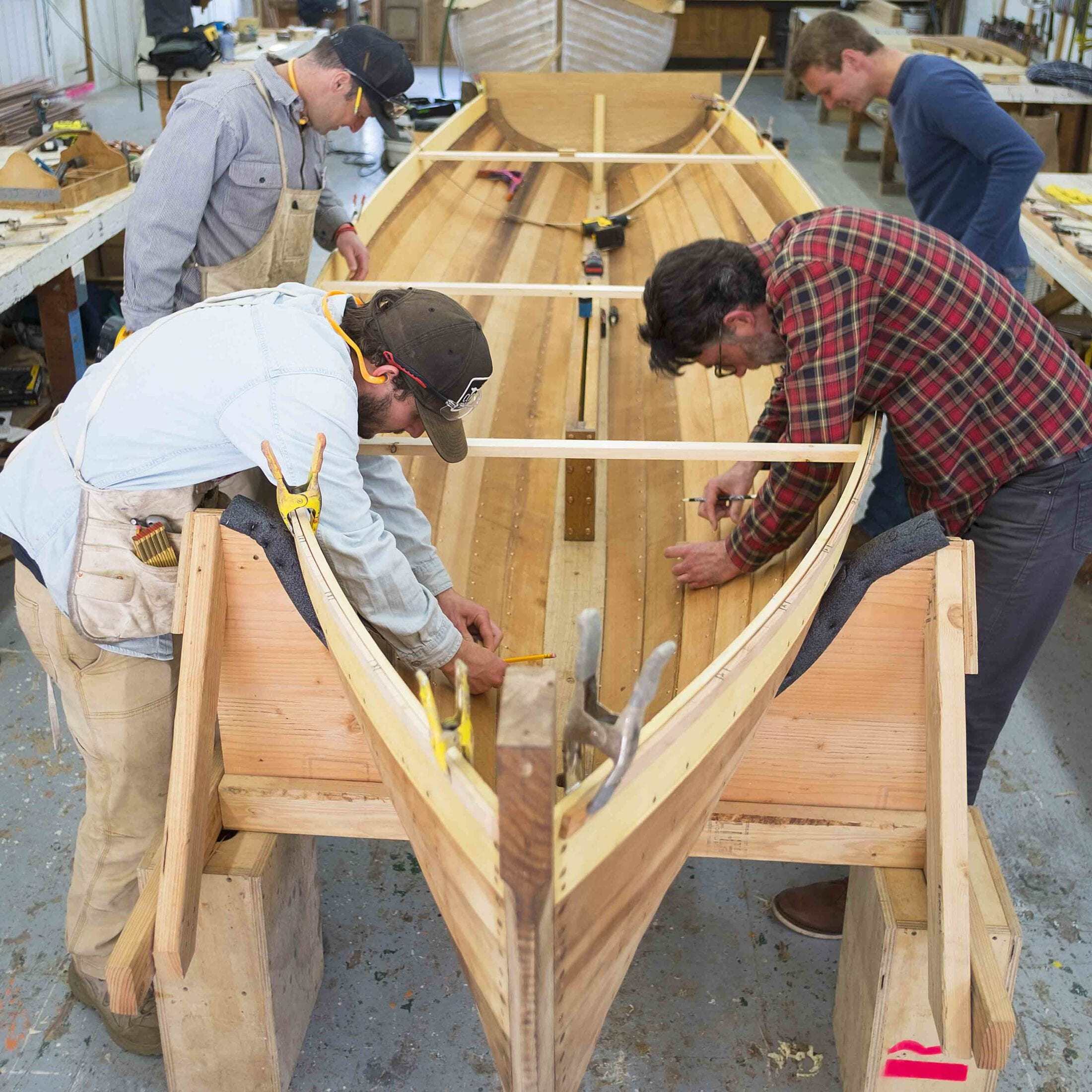Boats and Beyond: 5 Careers for Boatbuilding Graduates
Pursuing a Career in Boatbuilding
A career in the maritime trades industry can be both exciting and creative. Why might you turn your passion for boatbuilding into a profession? The work is hands-on and creative. There is demand and job stability. And you will be taking part in the preservation of craftsmanship and tradition.
The types of jobs in the boatbuilding industry are varied. They range from work in shipyards to maritime museums (https://www.nwswb.edu/career-services/). Here are some examples of jobs in the industry and why they are important:
Boatyard Manager
Boatyard managers oversee the daily operations of a boatyard facility, including organizing and scheduling boat repairs, maintenance, and storage. They manage a team of technicians, handle customer service and billing, and ensure compliance with safety and environmental regulations. Boatyard managers also oversee inventory, purchase equipment and supplies, and maintain relationships with suppliers and customers.
Boatyard managers play a crucial role in the smooth and efficient running of a boatyard facility. They ensure that boats are properly maintained, repaired, and stored, which helps to prolong their lifespan and maintain their value. Their managerial skills and attention to detail contribute to customer satisfaction and the overall success of the boatyard.
Composite Technician
Composite technicians work with materials such as fiberglass, carbon fiber, and resins to build and repair composite boat parts. They follow technical specifications and use hand and power tools to lay up fiberglass or carbon fiber composites, apply resins, and shape, sand, and finish the parts. They may also perform repairs and modifications to existing composite structures.
Composite technicians are essential for boatbuilding and repair projects involving composite materials. Their expertise ensures that the composite parts are constructed accurately, adhere to quality standards, and meet safety requirements. Their attention to detail and craftsmanship contribute to the structural integrity and aesthetics of the boat.
Marine Surveyor
Marine surveyors inspect and assess the condition of boats and yachts, including their structure, systems, and equipment. They perform in-water and out-of-water surveys, examine hulls, decks, and systems, and compile detailed reports on their findings. Marine surveyors might also provide consultancy services, give recommendations on repairs or upgrades, and verify compliance with industry standards and regulations.
Marine surveyors play a vital role in ensuring the safety and seaworthiness of boats and yachts. By thoroughly inspecting vessels and identifying any potential issues or deficiencies, they help to prevent accidents, protect investments, and assist in maintaining the overall quality and value of the vessel.
Fiberglass Laminators
Fiberglass laminators specialize in applying fiberglass materials to build boat surfaces, structures, and components. They lay fiberglass sheets or mats, impregnate them with resin, and use brushes, rollers, or spray equipment to consolidate and smooth the layers. They may also create molds for fiberglass parts and perform repairs or modifications to existing fiberglass structures.
Fiberglass laminators are invaluable as they are responsible for creating the strong and lightweight fiberglass structures that form the foundation of many boats. Their craftsmanship and attention to detail contribute to the durability, performance, and aesthetics of the finished vessel.
Educator (at Museums and Educational Institutions)
Boatbuilding educators are responsible for teaching and sharing their knowledge and skills with students in boatbuilding programs and vocational schools and in maritime museums. They develop curriculum, deliver lectures, lead practical demonstrations, and provide hands-on training in various boatbuilding techniques. They may also mentor and guide students on boatbuilding projects.
Boatbuilding educators play a crucial role in passing on the traditional skills and knowledge of boatbuilding to the next generation of craftsmen and technicians. They ensure that students receive comprehensive training and practical experience, preparing them for successful careers in the industry. Their expertise and guidance contribute to the preservation and advancement of boatbuilding techniques.
The Role of Education in the Boatbuilding Industry
A Boatbuilding Associate of Occupational (AOS) Degree is awarded at the successful completion of a program at an accredited school. This certification will attest to potential business owners and clients that the recipient has a good foundational knowledge of boatbuilding and has the skills and competence needed to enter the industry.
To explore what can be expected when earning this degree at the Northwest School of Wooden Boatbuilding, visit the school’s website (https://www.nwswb.edu/boatbuilding-program/)
Begin Your Boatbuilding Career Path
If you are ready to step onto a boatbuilding career path with a Boatbuilding Associate of Occupation (AOS) Degree, you are encouraged to visit https://www.nwswb.edu/boatbuilding-program/ and to check out a virtual open house event https://www.nwswb.edu/openhouse/.

